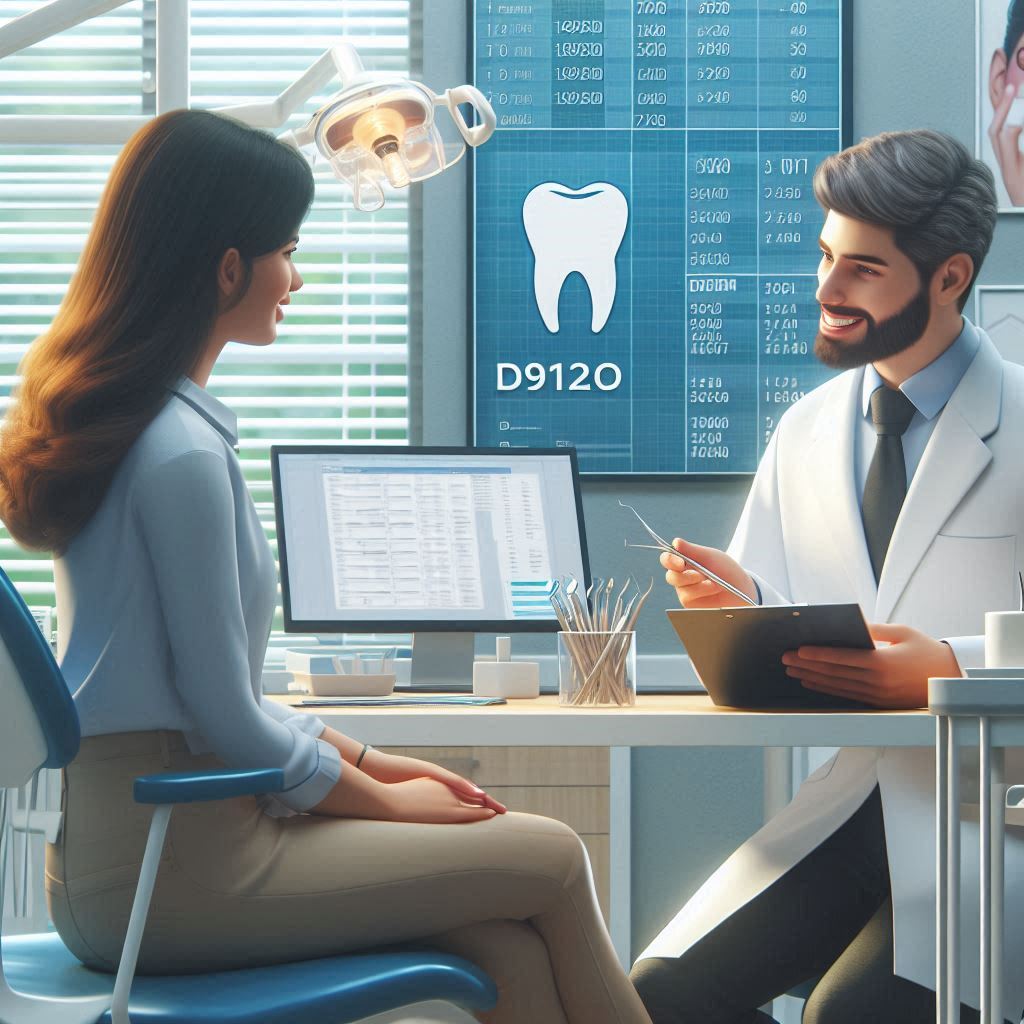D9120 Dental Code
Fixed partial dentures (FPDs), commonly known as dental bridges, are a reliable solution for replacing missing teeth. However, like any dental prosthesis, they may require repairs due to wear, fractures, or other complications. The D9120 dental code is specifically used for fixed partial denture repairs, ensuring proper documentation and billing for these procedures.
This comprehensive guide explores the D9120 dental code in detail, covering its applications, clinical scenarios, procedural steps, insurance considerations, and best practices for dentists. Whether you’re a dental professional seeking clarity on billing or a patient curious about the repair process, this article provides valuable insights.

2. Understanding the D9120 Dental Code
Definition and Purpose
The D9120 dental code is defined by the American Dental Association (ADA) as:
“Fixed partial denture repair necessitated by restorative material failure.”
This code applies when a fixed bridge or crown requires repair due to:
- Porcelain chipping or cracking
- Metal framework damage
- Debonding or loosening of the prosthesis
- Acrylic resin fractures
When is D9120 Used?
D9120 is applicable when:
✅ The repair is not covered under warranty (if the original dentist is unavailable).
✅ The damage is not due to trauma or abuse (in such cases, other codes may apply).
✅ The repair involves re-cementation, addition of material, or structural reinforcement.
3. Types of Fixed Partial Denture Repairs Covered Under D9120
| Type of Repair | Description | Common Causes |
|---|---|---|
| Porcelain Fracture | Chipping or cracking of the ceramic layer | Biting hard foods, bruxism, aging |
| Metal Framework Repair | Cracks or bends in the metal substructure | Poor fit, excessive force |
| Acrylic Resin Repair | Fractures in acrylic pontics or veneers | Wear and tear, impact damage |
| Re-Cementation | Loose bridge requiring re-bonding | Weak cement, poor initial fit |
4. Step-by-Step Procedure for Fixed Partial Denture Repair
- Diagnosis & Evaluation
- Assess the damage (clinical exam + X-rays if needed).
- Remove the Prosthesis (if necessary).
- Clean and Prepare the Surface (remove old cement/debris).
- Perform the Repair (add new porcelain, reinforce metal, or re-bond).
- Adjust and Polish for optimal fit and aesthetics.
- Re-Cement or Reattach the prosthesis.
5. Billing and Insurance Considerations
- Documentation Required: Pre-op images, detailed notes on the repair.
- Insurance Coverage: Some plans cover D9120 under “major repairs.”
- Patient Costs: If not covered, fees range from 150–150–600 depending on complexity.
6. Conclusion
The D9120 dental code is essential for documenting fixed partial denture repairs, ensuring proper insurance claims and patient care. Dentists must accurately diagnose, perform durable repairs, and maintain clear records. Patients should understand the process and potential costs involved. With advancements in dental materials, future repairs will become even more efficient.
7. FAQs
Q1: Does dental insurance cover D9120 repairs?
Some plans do, but coverage varies. Check with your provider.
Q2: How long does a fixed partial denture repair last?
With proper care, repairs can last 5–10 years or more.
Q3: Can a repaired bridge fail again?
Yes, especially if underlying issues (like bruxism) aren’t addressed.


